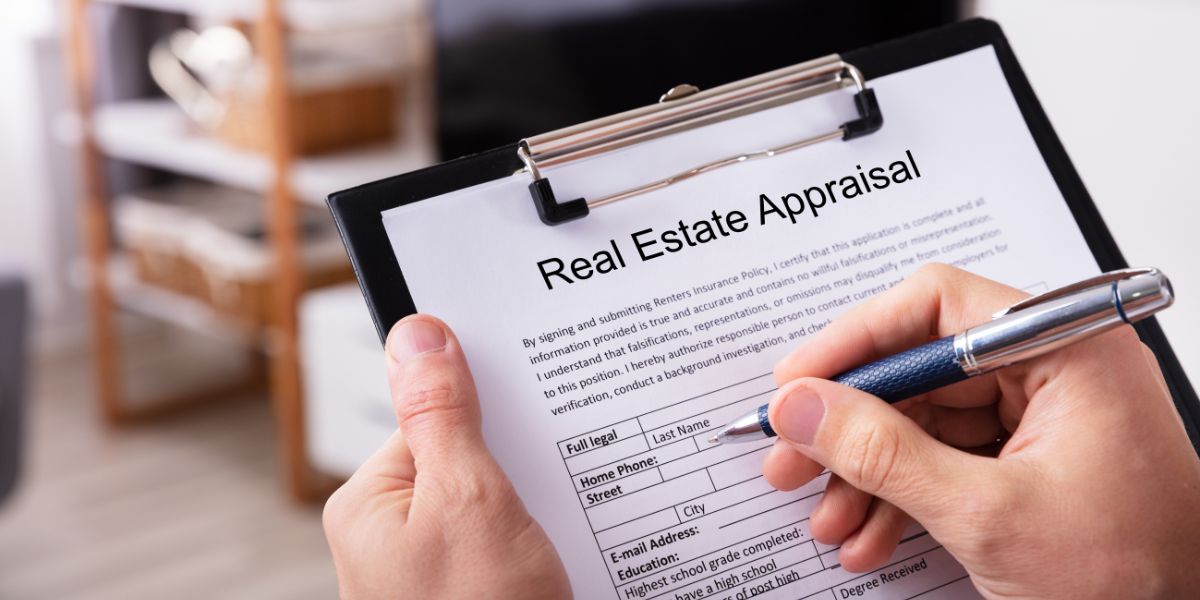Understanding the value of your home is a crucial step when preparing to sell, as it ensures you can aim for the most favorable price. One of the most effective methods to determine your home’s worth is through a Comparative Market Analysis, commonly known as a CMA. This comprehensive report evaluates your property by comparing it with similar homes in your area, helping you identify an ideal starting point for your listing price. If you’re curious about how to obtain a CMA and what it might cost, you’re in the right place.
First, it’s essential to recognize that a CMA differs from a home appraisal, as they serve different purposes. While both are methods of valuing a home, they aren’t the same process, so knowing the distinction is important before moving forward.
What Exactly Is a Comparative Market Analysis (CMA)?
A Comparative Market Analysis (CMA) is a tool used by real estate professionals to assess your home’s value by comparing it to properties that have recently sold in your area. This analysis factors in details such as square footage, the age of the property, location, any upgrades or renovations, and nearby amenities. The properties used in this comparison are commonly referred to as “comps.”
An experienced listing agent will compile this data to develop an informed opinion of your home’s value in the current market. Typically, a CMA report is thorough, containing charts, graphs, photographs, and other relevant data presented in an easy-to-understand format. While it offers a well-rounded estimate, it’s not a definitive figure but rather a helpful benchmark. Think of the CMA as a blend of data analysis and market insight—more of an art than an exact science, requiring the agent’s expertise to interpret the findings accurately.
How Is a CMA Created?
Real estate agents have access to resources that allow them to generate a far more accurate CMA than an individual could on their own. These resources include the Multiple Listing Service (MLS), which provides comprehensive data about properties, both listed and unlisted, along with tax records and current market trends. This wealth of data enables them to produce a CMA with far more precision than what’s available on public real estate websites.
Public sites often lack the complete picture because not all property transactions are accurately captured or recorded in their databases. Therefore, using these sites as your only resource can lead to incomplete or misleading information. A real estate agent, on the other hand, draws from a wide array of reliable sources to ensure the CMA reflects up-to-date and accurate data.
In essence, a CMA created by a real estate professional pulls together a variety of data points, providing a more reliable and comprehensive report to guide your home-selling process.
What Components Create a Strong Comparative Market Analysis (CMA)?
To produce a reliable and accurate CMA, a variety of crucial factors are taken into account, providing a complete assessment of the property’s potential value in the current market. These elements include:
- Location: The specific neighborhood or community significantly impacts a home’s value, considering factors like proximity to amenities, schools, and overall desirability of the area.
- Date of Sale: The timing of the sales data is essential since market trends can fluctuate rapidly. Recent sales carry more weight in determining current value.
- Lot Size and Number of Stories: Larger lots or unique features, such as multi-story properties, can increase a home’s value.
- Number of Bedrooms and Bathrooms: The count of bedrooms and bathrooms is a key component that directly affects how your home compares to others.
- Square Footage: This measure provides a basis for comparing the size of your home to other recently sold properties.
- Age and Condition of the Property: The overall condition and age of your home can heavily influence its valuation. Well-maintained or recently renovated homes generally fetch a higher price.
- Special Features: Aspects like landscaping, parking options, garage space, a finished basement, fencing, or a new HVAC system can enhance a home’s appeal and value.
- Upgrades and Extra Features: Added amenities, such as hardscaping, accessibility features, curb appeal, pools, hot tubs, or premium finishes like marble countertops, contribute significantly to a home’s worth.
- Sale and Financing Terms: Details of how comparable homes were sold, including any special financing or incentives, help establish a fair market comparison.
- Interior Photos of Comparable Properties: Visual comparisons allow potential buyers and agents to gauge how your home’s interior matches up to similar properties.
- Neighborhood Amenities: Features like access to a community pool, gated entry, or Homeowner Association (HOA) benefits also play a role in determining value.
Understanding the subtleties in these components is where the expertise of a skilled real estate professional becomes invaluable. An experienced agent knows how to weigh each of these factors appropriately to create an accurate CMA.
The Importance of Local Knowledge
Local market knowledge is a critical aspect when creating a CMA, as there are factors that can influence a home’s value, which aren’t always evident through photographs or basic data. For example, properties located near a busy road or nestled against a golf course can have vastly different values, even if they seem similar at first glance. Homes on golf courses tend to command a higher price than those adjacent to noisy roads or highways.
Having a real estate agent who understands these nuances allows for a more precise analysis. They can conduct a micro-analysis, considering the unique features and finishes inside and outside your home, comparing them against other properties within the same neighborhood. This kind of on-the-ground insight can be particularly crucial in today’s evolving market, where subtle differences can make a big impact on pricing.
How to Obtain a Comparative Market Analysis
Generally, you only need a CMA if you’re planning to sell your home. In most cases, you’ll already be working with a real estate agent, and a CMA will be one of the services they provide as part of their efforts to market and sell your property. Since a CMA is such an essential tool for determining an appropriate listing price, most top agents include it as part of their offering to clients.
What Does a Comparative Market Analysis Cost?
The cost of a CMA can vary. Some real estate agents charge between $100 to $200 for this service. However, most agents, like the Kenmore Team, offer CMAs at no cost to clients who intend to use their services to sell their home. In fact, it’s common for agents to promote free CMAs as part of their marketing strategy, often sending out fliers to specific neighborhoods to generate business, especially when the market is active.
Are CMAs Always Accurate?
It’s important to understand that a CMA provides a range rather than a fixed, guaranteed price. This flexibility can sometimes make a CMA seem imprecise, but the accuracy largely depends on the agent’s experience. Mistakes can happen, particularly if the analysis is conducted by an inexperienced or part-time agent. On the other hand, seasoned professionals pride themselves on delivering highly accurate CMAs and often have a proven track record to back up their pricing estimates.
If you ever feel uncertain about the accuracy of a CMA, you can always seek a second opinion from another real estate agent. Many homeowners have a good sense of their property’s worth, thanks to freely available online home value estimators, which helps them gauge the reliability of a CMA.
Factors That Can Lead to Inaccurate CMAs
While CMAs can be quite reliable, certain factors can contribute to inaccuracies, such as:
- Inappropriate Comparable Properties: Selecting comps that aren’t truly similar to your home can distort the valuation.
- Disregarding Important Features: If the analysis overlooks features or upgrades that significantly add value, the CMA might undervalue the property.
- Insufficient Data: Relying on outdated or incomplete listing data can lead to inaccuracies in the CMA.
- Undisclosed Issues or Features Nearby: Nearby undesirable elements, such as a noisy highway or industrial facility, can negatively affect a home’s value, and if not factored in, the CMA won’t be entirely accurate.
How Does a Real Estate CMA Differ from an Appraisal?
It’s important to distinguish between a Comparative Market Analysis (CMA) and a home appraisal, as they serve different purposes and involve varying levels of detail. Although both are used to estimate a home’s value, their methodologies and objectives set them apart.
A CMA is a real estate professional’s assessment of a property’s value based on comparing it with similar homes in the area, often using recent sales data. It’s essentially an agent’s “opinion of value,” grounded in a thorough market analysis. In contrast, a home appraisal is a more formal evaluation conducted by a licensed appraiser who typically visits the property in person or at least conducts a drive-by inspection. This process is more in-depth and follows strict guidelines to produce an objective valuation.
An important consideration is ensuring that whoever performs the CMA or appraisal has extensive knowledge of the local market. For instance, someone living in Tucson might not be familiar with the specific trends in Scottsdale, making their analysis less accurate. Local expertise is crucial for both processes to ensure accurate results.
Who Orders a CMA vs. an Appraisal?
Usually, a CMA is something you obtain when you’re planning to sell your home, and it’s typically offered as part of the services provided by a real estate agent. On the other hand, an appraisal is more often arranged by the buyer’s lender during the home-buying process to verify the property’s value before finalizing the mortgage. Buyers are usually responsible for the cost of the appraisal. However, sellers might sometimes opt for a pre-listing appraisal if their home has unique characteristics that make it difficult to determine its value through a CMA alone.
When Is a Pre-Listing Appraisal Beneficial?
Sellers may choose to get a pre-listing appraisal in situations where a home’s value might be particularly challenging to determine. These scenarios include:
- Homes with unique features: Properties that have rare amenities, such as a tennis court, home theater, or other specialized add-ons, may not have comparable sales to gauge their value accurately.
- Rural properties with few recent comparable sales: If a home is located in a rural area where sales data is sparse, an appraisal can provide a more concrete value.
- Properties with significant land: Homes with extensive acreage or land in a flood zone can be tricky to assess using a standard CMA.
- Historic homes: Older homes with unique, historic features that are uncommon in the market may require an appraisal for a more accurate value.
- Inherited homes with multiple heirs: When multiple family members inherit a property, an appraisal can help resolve disagreements about pricing.
- Difficulty in attracting viable offers: If a home isn’t receiving any strong offers, a pre-listing appraisal can help ensure that the price is set appropriately.
Drawbacks of a Pre-Listing Appraisal
While a pre-listing appraisal can be helpful, it’s not always necessary, and there are some downsides to consider. The cost can range from $300 to $400 or even more for larger, multi-family homes. Moreover, even if you invest in a pre-listing appraisal, the buyer’s lender will still conduct their own appraisal, which could yield a different result. It’s advisable to consult with your real estate agent, who can guide you on whether a pre-listing appraisal is beneficial for your particular property, especially if it has unique attributes that might be difficult to compare with other homes.
Can You Perform Your Own Comparative Market Analysis?
Although it’s possible to create your own CMA, it’s generally not recommended unless you have a solid understanding of real estate markets and access to reliable data. Putting together a DIY CMA can be a time-consuming and complicated process since many factors must be taken into account to arrive at an accurate valuation, such as recent sales, property features, and market trends. Attempting this on your own can be stressful and may lead to inaccuracies that could impact your selling price.
Considering that selling a home is already a demanding process, it’s wise to rely on a seasoned real estate agent who knows the local market. Their expertise will ensure you receive a well-researched CMA, saving you time and effort while providing a more accurate estimate of your home’s value.
Bottom Line: Trust a Professional for Your CMA
A Comparative Market Analysis is an essential tool for determining your home’s listing price, but it’s not the same as a formal appraisal. By comparing your property to similar homes in the area and evaluating numerous data points, a CMA offers a comprehensive overview of your home’s value in the current market.
Because a CMA plays such a crucial role in the home-selling process, it’s best to partner with an experienced real estate agent who can guide you every step of the way. This partnership should ideally begin even before you place the “For Sale” sign in your yard. In most cases, you can obtain a CMA from a local real estate professional at no cost, allowing you to start your home-selling journey on the right foot with a clear understanding of your property’s value.




